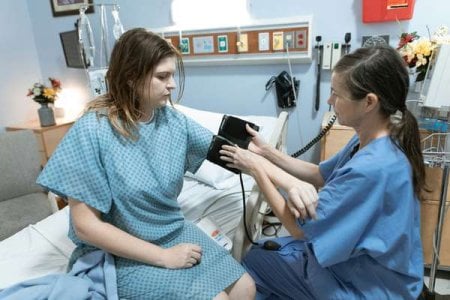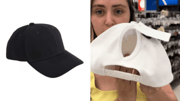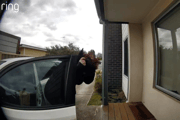Patient Travel Subsidy Scheme further aids patients with upcoming boost
By
Danielle F.
- Replies 8
Navigating the Australian healthcare system can be a daunting task, especially for those living in rural and remote areas.
Accessing essential medical services could involve long journeys and the financial burden of petrol and accommodation costs.
However, the journey to better health became easier and significantly cheaper thanks to a new update.
From 1 August, the Patient Travel Subsidy Scheme (PTSS) in Queensland will start offering immediate relief to those travelling for medical care.
Hailed as a game-changer for regional and remote residents, the Queensland government eliminated the initial out-of-pocket expense patients previously faced.
Under the old system, patients covered their accommodation costs for the first four nights before availing of the $70 per night subsidy.
This led to significant upfront costs that could deter individuals from seeking medical attention.
With the new update, the subsidy will kick in from the first night, ensuring that financial concerns are not an obstacle to necessary healthcare.
For a patient and their carer making the trip from the countryside to a major health hub like Brisbane or Cairns, this change could bring a minimum saving of $560 on accommodation alone.
The revamped policy could benefit an estimated 95,000 residents who travel often for medical purposes.
Premier Steven Miles emphasised the importance of this initiative.
'No one should have to worry about paying for accommodation when they are forced to travel to receive healthcare,' Premier Miles stated.
Health Minister Shannon Fentiman echoed the Premier's sentiment.
'We know cost of living is the number one issue for families, and every little bit helps,' she said.
The enhanced subsidy came with a commitment of $70.3 million over four years to support the program's concessional benefits.
This investment is a clear indication of the government's recognition of the unique challenges rural communities face.
Rural health advocate Justine Christensen, along with other advocates and patients, pushed for these changes, as she understood the financial strain placed on Queenslanders who travel for treatment.
'It's not travelled by choice. It's travelled by need,' she remarked.
With the revised PTSS, patients can now focus on their health and recovery.
The PTSS varies across states and territories.
Western Australia offers a $110 per night subsidy.
New South Wales provides $75 for the first seven nights, which increases to $120 later on.
For those who travel to seek medical attention, it's essential to explore the available subsidies in your state or territory.
Taking advantage of these schemes could alleviate financial pressure and focus on recovery instead.

Have you or someone you know benefited from the Patient Travel Subsidy Scheme? What do you think of this new update? Share your opinions and experiences with us in the comments below.
Accessing essential medical services could involve long journeys and the financial burden of petrol and accommodation costs.
However, the journey to better health became easier and significantly cheaper thanks to a new update.
From 1 August, the Patient Travel Subsidy Scheme (PTSS) in Queensland will start offering immediate relief to those travelling for medical care.
Hailed as a game-changer for regional and remote residents, the Queensland government eliminated the initial out-of-pocket expense patients previously faced.
Under the old system, patients covered their accommodation costs for the first four nights before availing of the $70 per night subsidy.
This led to significant upfront costs that could deter individuals from seeking medical attention.
With the new update, the subsidy will kick in from the first night, ensuring that financial concerns are not an obstacle to necessary healthcare.
For a patient and their carer making the trip from the countryside to a major health hub like Brisbane or Cairns, this change could bring a minimum saving of $560 on accommodation alone.
The revamped policy could benefit an estimated 95,000 residents who travel often for medical purposes.
Premier Steven Miles emphasised the importance of this initiative.
'No one should have to worry about paying for accommodation when they are forced to travel to receive healthcare,' Premier Miles stated.
Health Minister Shannon Fentiman echoed the Premier's sentiment.
'We know cost of living is the number one issue for families, and every little bit helps,' she said.
The enhanced subsidy came with a commitment of $70.3 million over four years to support the program's concessional benefits.
This investment is a clear indication of the government's recognition of the unique challenges rural communities face.
Rural health advocate Justine Christensen, along with other advocates and patients, pushed for these changes, as she understood the financial strain placed on Queenslanders who travel for treatment.
'It's not travelled by choice. It's travelled by need,' she remarked.
With the revised PTSS, patients can now focus on their health and recovery.
The PTSS varies across states and territories.
Western Australia offers a $110 per night subsidy.
New South Wales provides $75 for the first seven nights, which increases to $120 later on.
For those who travel to seek medical attention, it's essential to explore the available subsidies in your state or territory.
Taking advantage of these schemes could alleviate financial pressure and focus on recovery instead.
Key Takeaways
- Starting 1 August, the Patient Travel Subsidy Scheme could help save accommodation costs for rural patients travelling for medical care.
- The scheme will subsidise patients from the first day of treatment, which could be beneficial for over 95,000 rural Queenslanders.
- Patients and their carers should receive a $70-a-night subsidy from the first night away, with potential savings of at least $560.
- The Queensland government invested $70.3 million over four years to implement these concessional benefits, aiming to reduce the financial burden on families seeking medical treatment.








